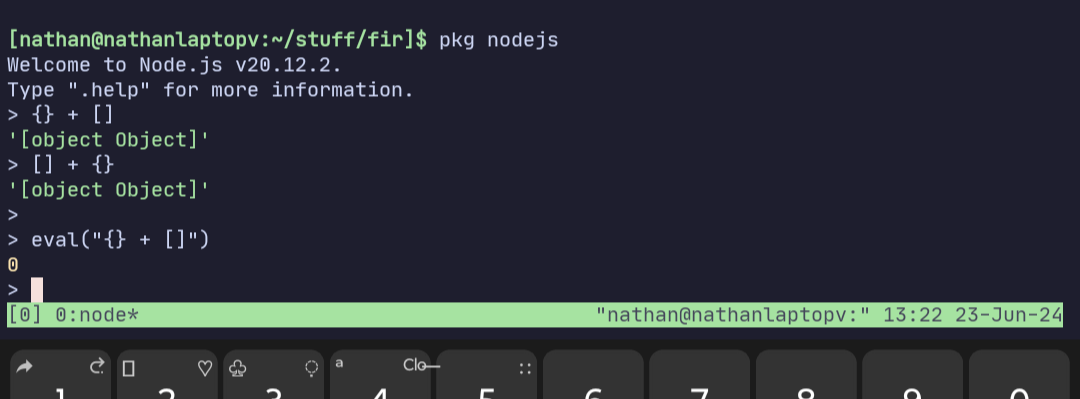this post was submitted on 23 Jun 2024
728 points (96.4% liked)
Programmer Humor
19910 readers
1847 users here now
Welcome to Programmer Humor!
This is a place where you can post jokes, memes, humor, etc. related to programming!
For sharing awful code theres also Programming Horror.
Rules
- Keep content in english
- No advertisements
- Posts must be related to programming or programmer topics
founded 2 years ago
MODERATORS
you are viewing a single comment's thread
view the rest of the comments
view the rest of the comments

The inspector REPL evaluates as a statement-with-value (like
eval), so the{}at the beginning is considered an empty block, not an object. This leaves+[], which is 0. I don't know what would make Node differ, however.Edit: Tested it myself. It seems Node prefers evaluating this as an expression when it can, but explicitly using
evalgives the inspector behavior:So there's yet another level of quirkery to this bullshit then, it seems. 😆 Nice digging! 🤝
I also noticed that if you surround the curlies with parentheses, you get the same again:
Yep, parentheses force
{}to be interpreted as an expression rather than a block — same reason why IIFEs have!functioninstead of justfunction./me goes back to get second folding chair.
I thought IIFE's usually looked like
(function (...params) {})(...args). That's not the latest way? To be honest I never used them much, at least not after arrow functions arrived.